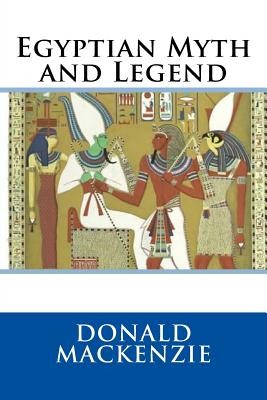
- We will send in 10–14 business days.
- Author: Donald MacKenzie
- Publisher: CreateSpace Independent Publishing Platform
- Year: 2015
- Pages: 180
- ISBN-10: 1514156008
- ISBN-13: 9781514156001
- Format: 15.2 x 22.9 x 1 cm, minkšti viršeliai
- Language: English
- SAVE -10% with code: EXTRA
Reviews
Description
Egyptian mythology is of highly complex character, and cannot be considered apart from its racial andhistorical aspects. The Egyptians were, as a Hebrew prophet has declared, a "mingled people", and this viewhas been confirmed by recent ethnological research: "the process; of racial fusion begun in the Delta at thedawn of history", says Professor Elliot Smith, "spread through the whole land of Egypt". In localities theearly Nilotic inhabitants accepted the religious beliefs of settlers, and fused these with their own. They alsoclung tenaciously to the crude and primitive tribal beliefs of their remote ancestors, and never abandoned anarchaic conception even when they acquired new and more enlightened ideas; they accepted myths literally, and regarded with great sanctity ancient ceremonies and usages. They even showed a tendency to multiplyrather than to reduce the number of their gods and goddesses, by symbolizing their attributes. As a result, wefind it necessary to deal with a bewildering number of deities and a confused mass of beliefs, many of whichare obscure and contradictory. But the average Egyptian was never dismayed by inconsistencies in religiousmatters: he seemed rather to be fascinated by them. There was, strictly speaking, no orthodox creed in Egypt;each provincial centre had its own distinctive theological system, and the religion of an individual appears tohave depended mainly on his habits of life. "The Egyptian", as Professor Wiedemann has said, "neverattempted to systematize his conceptions of the different divinities into a homogeneous religion. It is open tous to speak of the religious ideas of the Egyptians, but not of an Egyptian religion.
- Author: Donald MacKenzie
- Publisher: CreateSpace Independent Publishing Platform
- Year: 2015
- Pages: 180
- ISBN-10: 1514156008
- ISBN-13: 9781514156001
- Format: 15.2 x 22.9 x 1 cm, minkšti viršeliai
- Language: English English
Egyptian mythology is of highly complex character, and cannot be considered apart from its racial andhistorical aspects. The Egyptians were, as a Hebrew prophet has declared, a "mingled people", and this viewhas been confirmed by recent ethnological research: "the process; of racial fusion begun in the Delta at thedawn of history", says Professor Elliot Smith, "spread through the whole land of Egypt". In localities theearly Nilotic inhabitants accepted the religious beliefs of settlers, and fused these with their own. They alsoclung tenaciously to the crude and primitive tribal beliefs of their remote ancestors, and never abandoned anarchaic conception even when they acquired new and more enlightened ideas; they accepted myths literally, and regarded with great sanctity ancient ceremonies and usages. They even showed a tendency to multiplyrather than to reduce the number of their gods and goddesses, by symbolizing their attributes. As a result, wefind it necessary to deal with a bewildering number of deities and a confused mass of beliefs, many of whichare obscure and contradictory. But the average Egyptian was never dismayed by inconsistencies in religiousmatters: he seemed rather to be fascinated by them. There was, strictly speaking, no orthodox creed in Egypt;each provincial centre had its own distinctive theological system, and the religion of an individual appears tohave depended mainly on his habits of life. "The Egyptian", as Professor Wiedemann has said, "neverattempted to systematize his conceptions of the different divinities into a homogeneous religion. It is open tous to speak of the religious ideas of the Egyptians, but not of an Egyptian religion.


Reviews